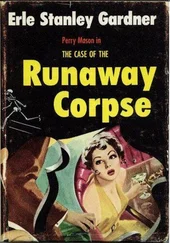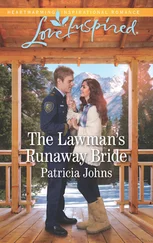John - The Runaway Jury
Здесь есть возможность читать онлайн «John - The Runaway Jury» весь текст электронной книги совершенно бесплатно (целиком полную версию без сокращений). В некоторых случаях можно слушать аудио, скачать через торрент в формате fb2 и присутствует краткое содержание. Жанр: Детектив, на английском языке. Описание произведения, (предисловие) а так же отзывы посетителей доступны на портале библиотеки ЛибКат.
- Название:The Runaway Jury
- Автор:
- Жанр:
- Год:неизвестен
- ISBN:нет данных
- Рейтинг книги:5 / 5. Голосов: 1
-
Избранное:Добавить в избранное
- Отзывы:
-
Ваша оценка:
- 100
- 1
- 2
- 3
- 4
- 5
The Runaway Jury: краткое содержание, описание и аннотация
Предлагаем к чтению аннотацию, описание, краткое содержание или предисловие (зависит от того, что написал сам автор книги «The Runaway Jury»). Если вы не нашли необходимую информацию о книге — напишите в комментариях, мы постараемся отыскать её.
The Runaway Jury — читать онлайн бесплатно полную книгу (весь текст) целиком
Ниже представлен текст книги, разбитый по страницам. Система сохранения места последней прочитанной страницы, позволяет с удобством читать онлайн бесплатно книгу «The Runaway Jury», без необходимости каждый раз заново искать на чём Вы остановились. Поставьте закладку, и сможете в любой момент перейти на страницу, на которой закончили чтение.
Интервал:
Закладка:
He knew a girl in the clerk's office, and this friend had looked at the file. “You guys are suing the tobacco company for millions,” he said, every word getting captured by a body mike in Cleve's shirt pocket. “Eighty thousand is a drop in the bucket.”
“You're crazy,” Cleve said.
“And you're crooked.”
“There's no way we can pay eighty thousand cash. Like I said before, when the money gets too big, then we run the risk of getting caught.”
“Fine. I'll go talk to the tobacco company.”
“You do that. I'll read about it in the newspapers.”
They didn't finish their drinks. Cleve again left early, but this time Derrick did not chase him.
THE PARADE of beauties continued Thursday afternoon as Cable put on the stand Dr. Myra Sprawling-Goode, a black professor and researcher at Rutgers who turned every head in the depraved courtroom as she presented herself for testimony. She was almost six feet tall, as striking and slender and well dressed as the last witness. Her creamy light brown skin creased perfectly as she smiled at the jurors, a smile that lingered on Lonnie Shaver, who actually smiled back.
Cable had an unlimited budget when he began his search for experts, so he was not compelled to use people who weren't sharp and glib and able to connect with average folk. He had videotaped Dr. Sprawling-Goode twice before he hired her, then once during her deposition in Rohr's office. Like all his witnesses, she had spent two days getting grilled in a mock courtroom setting a month before ,the trial began. She crossed her legs and the courtroom took a collective deep breath.
She was a professor of marketing with two doctorates and impressive credentials, no surprise. She'd spent eight years in advertising on Madison Avenue after she had completed her education, then returned to academia, where she belonged. Her field of expertise was consumer advertising, a subject she taught at the graduate level and one she researched continually. Her purpose at the trial soon became clear. A cynic might have claimed she was there to look pretty, to connect with Lonnie Shaver and Loreen Duke and Angel Weese, to make them proud that a fellow African-American was perfectly capable of projecting expert opinions in this crucial trial.
She was actually there because of Fitch. Six years earlier, after a scare in New Jersey in which a jury stayed out three days before returning with a defense verdict, Fitch had hatched the plan to find an attractive female researcher, preferably at a reputable university, to take a chunk of grant money and study cigarette advertising and its effects on teenagers. The parameters of the project would be vaguely defined by the source of the money, and Fitch was hoping the study would one day be useful in a trial.
Dr. Sprawling-Goode had never heard of Rankin Fitch. She had received an eight-hundred-thousand-dollar grant from the Consumer Product Institute, an obscure and previously unheard of think tank in Ottawa which existed, it claimed, to study the marketing trends of thousands of consumer products. She knew little about the Consumer Product Institute. Neither did Rohr. He and his investigators had been digging for two years. It was very private, protected to some degree by Canadian law, and apparently funded by large consumer product companies, none of which appeared to be cigarette manufacturers.
Her findings were contained in a handsome, bound, two-inch-thick report, which Cable got admitted into evidence. It joined a stack of other exhibits as an official piece of the record. Exhibit number eighty-four, to be exact, adding to the twenty thousand or so pages already in evidence and expected to be reviewed by the jury during deliberations.
After the thorough and efficient setup, her findings were succinct and unsurprising. With certain clearly defined and obvious exceptions, all advertising for consumer products is aimed at young adults. Cars, toothpaste, soap, cereal, beer, soft drinks, apparel, cologne-all of the most heavily advertised products have young adults as their target audience. The same is true for cigarettes. Sure, they are portrayed as the products of choice of the thin and beautiful, the active and carefree, the rich and glamorous. But so are countless other products.
She then ticked off a list of specifics, starting with automobiles. When was the last time you saw a TV ad for a sports car with a fat fifty-year-old man behind the wheel? Or a mini-van driven by an obese housewife with six kids and a dirty dog hanging out the windows? Never happens. Beer? You got ten guys sitting in a den watching the Super Bowl. Most have hair, strong chins, perfect jeans, and flat stomachs. This is not reality, but it's successful advertising.
Her testimony became quite humorous as she went through her list. Toothpaste? Ever see an ugly person with ugly teeth grinning at you through the TV? Of course not. They all have perfect teeth. Even in the acne commercials the troubled teens have only a pimple or two.
She smiled easily and even giggled at times at her own comments. The jury smiled along with her. Her point found its mark repeatedly. If successful advertising depends on targeting young adults, why shouldn't tobacco companies be allowed to do it?
She stopped smiling when Cable moved her to the issue of targeting kids. She and her research team had found no evidence of this, and they had studied thousands of tobacco ads over the past forty years. They had watched, studied, and cataloged every cigarette ad used during the TV days. And she noted, almost in an aside, that smoking had increased since such ads were banned from TV. She had spent almost two years searching for evidence that tobacco companies target teens, because she had started the project with this unfounded bias. But it simply wasn't true.
In her opinion, the only way to prevent kids from being influenced by cigarette ads was to ban all of them-billboards, buses, newspapers, magazines, coupons. And, in her opinion, this would do nothing to slow tobacco sales. It would have no impact whatsoever on underage smoking.
Cable thanked her as if she were a volunteer. She'd already been paid sixty thousand dollars to testify, and would send a bill for another fifteen. Rohr, who was anything but a gentleman, knew the pitfalls of attacking such a pretty lady in the Deep South. He delicately probed instead. He had lots of questions about the Consumer Product Institute, and the eight hundred thousand dollars it had paid for this study. She told him everything she knew. It was an academic body established to study trends and formulate policy. It was funded by private industry.
“Any tobacco companies?”
“Not that I'm aware of.”
“Any subsidiaries of tobacco companies?”
“I'm not sure.”
He asked her about companies related to tobacco companies, parent companies, sister companies, and divisions and conglomerates, and she knew nothing.
She knew nothing because that was the way Fitch had planned it.
CLAIRE'S TRAIL took an unexpected turn Thursday morning. The ex-boyfriend of a friend of Claire's took a thousand dollars in cash and said his ex-girlfriend was now in Greenwich Village working as a waitress while aspiring to do serious work in soap operas. His ex-girlfriend and Claire had worked together at Mulligan's and allegedly had been close friends. Swanson flew to New York, arrived late Thursday afternoon, and took a cab to a small hotel in SoHo where he paid cash for one night and started making calls. He found Beverly at work in a pizzeria. She answered the phone in a hurry.
“Is this Beverly Monk?” Swanson asked, in his best imitation of Nicholas Easter. He'd listened to his recorded voice many times.
“It is. Who is this?”
“The Beverly Monk who once worked at Mulligan's in Lawrence?”
Читать дальшеИнтервал:
Закладка:
Похожие книги на «The Runaway Jury»
Представляем Вашему вниманию похожие книги на «The Runaway Jury» списком для выбора. Мы отобрали схожую по названию и смыслу литературу в надежде предоставить читателям больше вариантов отыскать новые, интересные, ещё непрочитанные произведения.
Обсуждение, отзывы о книге «The Runaway Jury» и просто собственные мнения читателей. Оставьте ваши комментарии, напишите, что Вы думаете о произведении, его смысле или главных героях. Укажите что конкретно понравилось, а что нет, и почему Вы так считаете.












